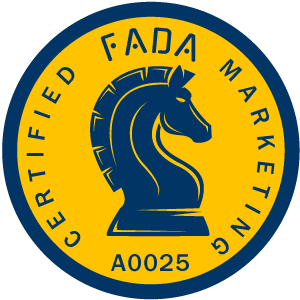Phone support available Mon-Fri, 9:00 am to 5:00 pm U.S. Central: (713) 936-5557
Why Your Business Needs a Content Calendar for the Year

Are you looking to give your business a shot in the arm going into the New Year? You may have already tried out some short-term tactics like special promotions and discounts, but if you really want to build your brand up for long-term success, it's time to think bigger. Having a content calendar can be one of the most invaluable tools for growing your business in 2024 – to do this effectively requires planning ahead and creating a detailed roadmap that outlines what should be done when.
What is a content calendar and why you need one
A content calendar is an essential tool for any company that wants to succeed in developing and executing a successful marketing strategy. It is a visual representation of all the content that needs to be created, published, and shared across multiple channels in a given period. It helps teams streamline their workflow, eliminates guesswork, and ensures that they consistently produce high-quality content that resonates with their audience. A content calendar also helps businesses build a cohesive brand voice and messaging, reduces the risk of duplication, and saves time and resources. In short, a content calendar is a must-have for anyone looking to maximize their content's impact and increase their chances of achieving their marketing objectives. So, if you haven't already, consider creating one for your business today!
Steps to creating an effective content calendar
Creating an effective content calendar can seem like a daunting task. However, with a well-planned approach, it can make your content creation process much more streamlined and effective. Firstly, identify your content themes. These are the overarching themes that your brand or organization speaks to. Next, decide on the frequency of your content. How often do you want to produce content? Once a week? Twice a month? Then, assign dates to your content themes and ideas. This will help you keep track of when each piece of content needs to be created, reviewed and published. Finally, decide on a publishing schedule. By following these steps, not only will you find it easier to plan content, but you will have a clear understanding of what content should be developed and when to effectively reach your audience.
How to track performance
As a content marketer, charting the success of your content calendar over time is essential to understanding what works and what doesn't. To begin tracking performance, establish clear goals for your content, such as increasing website traffic or driving more conversions. Once these goals are established, use tools like Google Analytics to track metrics such as pageviews, bounce rates, and time on site. Additionally, track engagement on social media platforms by measuring likes, shares, and comments. By consistently analyzing and adjusting your content strategy based on these metrics, you can optimize your content calendar and continuously improve its performance. With diligence and persistence, you'll be able to reap the benefits of a successful content marketing strategy for years to come.
Resources for finding ideas for content topics
In order to create engaging content for your audience and keep them coming back for more, you need to constantly come up with new ideas. However, constantly brainstorming new ideas can be time-consuming and exhausting. Fortunately, there are plenty of resources available to help you find fresh content ideas to add to your content calendar. From social media insights to keyword research tools, using these resources will help you save time and accurately target your audience. Additionally, exploring forums and question-and-answer sites can provide insight into what your audience is looking for. By utilizing these resources, you can come up with a never-ending stream of content ideas that are sure to captivate your audience.
A content calendar is an invaluable tool for any business looking to create and manage content more efficiently. Creating and managing a content calendar offers numerous benefits, such as budgeting time and resources more effectively, giving visibility to team members, aligning your content with your marketing efforts, and creating structure for the content production process. To create an effective calendar, start by laying out the objectives of your campaigns, deciding on how often you’ll publish content, organizing categorically or chronologically, staying consistent with dates and times of publication, as well as tracking the performances on an ongoing basis by utilizing analytical data. By staying organized through a content calendar, readers will be engaged with quality and frequent material created according to plan. With the right strategies sewn into practice within the development of your calendar, success will soon follow. Take action now; create a successful Content Calendar today!










Contact Us:
Mansfield Marketing LLC
22001 Northpark Dr. STE 240B
Houston, TX 77339 USA
(713) 936-5557
sales@mansfield.us

Stripe™ Climate Partner:
Mansfield is partnered with Stripe to donate 1% of all sales to climate carbon removal technologies. Learn more.

FADA® Certified Agency:
Mansfield AI is a FADA Certified marketing professional organization.
©2023 Mansfield Marketing LLC • All Rights Reserved • Privacy • Mansfield AI is owned and operated by Mansfield Marketing LLC